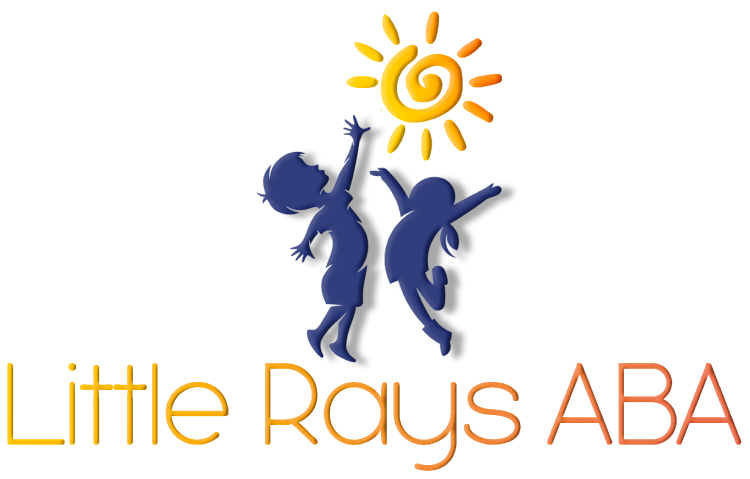For parents of autistic children, managing challenging behaviors can be overwhelming. While there is no cure for autism, some medications—especially antipsychotics—are prescribed to help with severe aggression, self-injury, and irritability. But is medication for autism the right choice?
This article explores the role of medication in autism treatment, its potential benefits, side effects, and alternative approaches. Understanding all options will help parents make informed decisions about their child’s well-being.
Understanding Antipsychotic Medication for Autism
What are Antipsychotic Medications?
Antipsychotic medications are a class of drugs primarily used to manage psychosis, including delusions, hallucinations, and disorders like schizophrenia. These medications can affect brain chemicals, called neurotransmitters, which influence mood and behavior.
Antipsychotic drugs are categorized into two main classes:
- First-Generation Antipsychotics (FGAs): Also known as typical antipsychotics, these medications have been used for many years to treat severe psychiatric conditions.
- Second-Generation Antipsychotics (SGAs): Commonly referred to as atypical antipsychotics, these newer medications are designed to reduce symptoms while minimizing side effects.
Use of Antipsychotic Medications in Autism Treatment
Autistic individuals can face various challenges, including irritability, aggression, self-injurious behaviors, and severe tantrums. Antipsychotic medications may be prescribed to manage these behavioral issues when other treatments have not been effective.
Autistic individuals can face various challenges, including irritability, aggression, self-injurious behaviors, and severe tantrums. Antipsychotic medications may be prescribed to manage these behavioral issues when other treatments have not been effective.
The primary use of antipsychotic medication for autism revolves around two main categories:
- Behavioral Management: Medications are often used to help reduce severe behavioral issues that can interfere with daily life and overall well-being.
- Comorbid Conditions: Many autistic individuals may have co-occurring conditions such as anxiety, depression, or obsessive-compulsive disorder. Antipsychotics can be used to address these additional mental health issues.
It is crucial for parents and caregivers to be aware that the effectiveness of these medications can vary among individuals. Close collaboration with healthcare providers is essential to determine the best course of action.
Factors to Consider
Effectiveness of Antipsychotic Medication for Autism
Antipsychotic medications are often prescribed to manage certain symptoms in individuals with autism. It's important for parents to understand how these medications can be effective.
Antipsychotic medications can help reduce irritability, aggression, and self-injury behaviors in autistic individuals. They work by altering the effects of neurotransmitters in the brain, which can lead to improved behavior and mood stabilization.
However, the effectiveness of these medications can vary from person to person. While some individuals may see significant improvements, others might not experience the same level of benefit. It's crucial for parents to work closely with their child's healthcare provider to monitor and assess the medication's impact.
Potential Side Effects and Risks
While antipsychotic medications can offer benefits, they also come with potential side effects and risks that parents need to be aware of. These side effects can range from mild to severe and may affect each individual differently.
Common side effects include:
- Drowsiness
- Weight gain
- Increased appetite
- Dizziness
- Constipation
In more serious cases, antipsychotic medications can lead to:
- Tardive dyskinesia (involuntary movements)
- Metabolic changes, such as increased blood sugar or cholesterol levels
- Hormonal changes, including elevated prolactin levels
It's essential for parents to stay informed and communicate any side effects they observe to their child's healthcare provider. Regular monitoring through blood tests and physical exams can help manage these risks.
Parents should weigh the potential benefits against the risks and side effects when considering antipsychotic medication for autism. Collaborating with healthcare providers can ensure that the treatment plan aligns with the child's needs and overall well-being.
Parental Support and Involvement
Effectively managing a child's treatment with antipsychotic medication for autism requires active parental support and understanding. Parents play a pivotal role in ensuring the success of their child's treatment.
Importance of Parental Understanding and Support
Parents need to comprehend the role of antipsychotic medications in treating autism. By understanding the potential benefits and challenges, parents can make more informed decisions regarding their child's treatment plan. Educating themselves about the medications, including how they work and their potential side effects, empowers parents to be proactive in managing their child's health.
Supportive parents can also provide emotional stability for their child. Children are more likely to respond positively to treatment when they feel supported at home. Thus, the emotional and psychological well-being of the child often improves when parents are engaged and understanding.
Communicating with Healthcare Providers
Communication with healthcare providers is necessary for successful treatment. Parents should maintain open and continuous dialogue with their child's healthcare team, including doctors, therapists, and specialists. This communication ensures that all parties are aligned and that the child's treatment plan is consistently monitored and adjusted as needed.
During appointments, parents should discuss any observations or concerns they have about their child's behavior and health. They should also ask questions to clarify any doubts about the medication, dosage, and potential interactions with other treatments. Keeping detailed records of the child's progress and any side effects is helpful for these discussions.
Regular communication with healthcare providers can:
Ensure that the child is receiving the most appropriate and effective treatment
- Help in promptly addressing any side effects or adverse reactions
- Enable timely adjustments to the medication or dosage if needed
- Foster a collaborative approach to the child's overall well-being
By understanding the importance of their role and maintaining effective communication with healthcare providers, parents can greatly contribute to the success of antipsychotic medication for autism. This proactive approach not only enhances the treatment outcomes but also supports the child's long-term development and quality of life.
Managing Antipsychotic Treatment
Successfully managing antipsychotic medication for autism involves ongoing monitoring and collaboration with healthcare professionals.
Monitoring Progress and Adjusting Medication
Monitoring the effects of antipsychotic medication is crucial. Parents should observe their child's response to treatment and note any changes in behavior, mood, or physical health. Regular check-ups with the prescribing doctor help to evaluate how well the medication is working and whether adjustments are needed.
Common areas to monitor include:
- Behavioral improvements
- Frequency and intensity of autistic symptoms
- Any new or worsening side effects
Adjusting the medication dosage may be necessary based on the child's response. Healthcare providers often start with a lower dose and gradually increase it to find the optimal balance between effectiveness and side effects. Consistent communication with the healthcare provider ensures that the child receives the most appropriate care.
Collaborating with therapists and specialists is another key aspect of managing antipsychotic treatment. Multi-disciplinary involvement can provide a comprehensive approach to care.
Roles of various specialists:
- Psychiatrists: Prescribe and manage medication
- Psychologists: Offer behavioral therapies and support
- Occupational therapists: Work on functional skills and sensory integration
- Speech therapists: Focus on communication abilities
Regular meetings or updates with these professionals ensure that all aspects of the child's development are considered. Sharing observations and progress reports among the team can lead to more informed decisions about medication and therapies.
Ultimately, a coordinated effort between parents, healthcare providers, and therapists can maximize the benefits of antipsychotic medication, while minimizing risks and addressing the holistic needs of the child.
Enhancing Parental Well-Being
Self-Care Strategies for Parents of Autistic Children
Caring for an autistic child can be demanding, making self-care essential for parents. First and foremost, parents should prioritize their physical well-being by maintaining a balanced diet, regular exercise, and adequate sleep. Doing so will ensure they have the energy and mental clarity needed to care for their child.
Mental and emotional health are equally important. Parents should allocate time each day for activities that bring them joy and relaxation. These might include hobbies, reading, or listening to music. Engaging in mindfulness practices, such as meditation and deep-breathing exercises, can also be beneficial for reducing stress.
Another vital strategy is setting boundaries and knowing when to seek help. Respite care services, which provide temporary relief for caregivers, can be invaluable in preventing burnout. It’s important for parents to acknowledge their limits and take a break when needed.
Seeking Support and Resources
Having a robust support system is crucial for parents managing the complex needs of an autistic child. Support groups, whether online or in person, provide a platform for sharing experiences and advice. These communities can be an invaluable resource for emotional support and practical guidance.
Parents should also keep open lines of communication with healthcare providers. Regular check-ins with doctors, therapists, and specialists can provide reassurance and professional advice tailored to their child's unique needs.
Educational resources are another key component. Parents can benefit from attending workshops and seminars focused on autism and its treatments. Many organizations offer free resources that provide valuable insights into managing autistic behavior, understanding medication options, and advocating for their child's rights.
Finally, parents should be aware of local and national autism support organizations. These organizations often provide resources, counseling services, and advocacy support, helping parents navigate the challenges associated with antipsychotic medication for autism.
By adopting self-care strategies and seeking out support, parents can better manage the demands of caring for an autistic child, ensuring that both they and their child thrive.
Advocating for Your Child
Educational Rights and Advocacy Efforts
Parents play a vital role in ensuring that their autistic children receive the education and support they deserve. Understanding educational rights is the first step in advocacy.
In the United States, the Individuals with Disabilities Education Act (IDEA) ensures that children with disabilities, including autism, have access to free appropriate public education (FAPE). Parents should be aware of their child's rights under IDEA, including the right to an Individualized Education Program (IEP).
An IEP is a legally binding document that outlines the specific services and accommodations a child needs to succeed in school. Parents should actively participate in IEP meetings and collaborate with educators to ensure their child's needs are met.
Parents can also engage in advocacy efforts beyond their child's school. This can include joining local or national advocacy groups, attending workshops, or participating in policy-making processes to improve resources and support for autistic individuals.
Building a Supportive Network and Community
Creating a strong support network is essential for parents of autistic children. A supportive community can provide emotional backing, share valuable information, and offer practical assistance.
Parents can start by connecting with other families facing similar challenges. Parent support groups, both online and offline, offer a platform to share experiences and advice. These groups often organize meetings, workshops, and social events that help families build lasting relationships.
Additionally, parents can seek out professionals who specialize in autism, such as therapists, counselors, and special education teachers. Collaborating with these experts ensures that the child receives comprehensive care and support.
Building a supportive network and community not only benefits the child but also enhances parental well-being. Engaged and informed parents are better equipped to advocate for their child's needs, ensuring a brighter future for autistic individuals.
FAQs
Can medication cure autism?
No, there is no cure for autism. Medication is used to manage specific symptoms like aggression and irritability, not to treat autism itself.
What are the most common medications prescribed for autism?
The FDA has approved risperidone and aripiprazole to help manage severe behavioral issues in autistic individuals. Other medications may be prescribed for co-occurring conditions like anxiety or ADHD.
Are there alternatives to medication for managing autism symptoms?
Yes! Behavioral therapies, such as Applied Behavior Analysis (ABA), help autistic individuals develop coping strategies and improve daily functioning without relying on medication.
Sources:
https://www.nichd.nih.gov/health/topics/autism/conditioninfo/treatments/medication-treatment
https://www.autismspeaks.org/medications-autism
https://www.aacap.org/App_Themes/AACAP/Docs/resource_centers/autism/Autism_Spectrum_Disorder_Parents_Medication_Guide.pdf
https://pmc.ncbi.nlm.nih.gov/articles/PMC4450669/
https://pmc.ncbi.nlm.nih.gov/articles/PMC7738698/
Unlock Your Child's Potential with Expert ABA Therapy!
At Little Rays ABA, we provide compassionate, evidence-based ABA therapy to help children with autism thrive. Our personalized approach fosters growth in communication, social skills, and independence.
Get In Touch With Us Today to Get Started With ABA Therapy!
Related Posts
MENU
GET IN TOUCH
7117 San Salvador Dr Boca Raton, FL 33433
3200 Collins Ave Miami Beach, FL 33140





